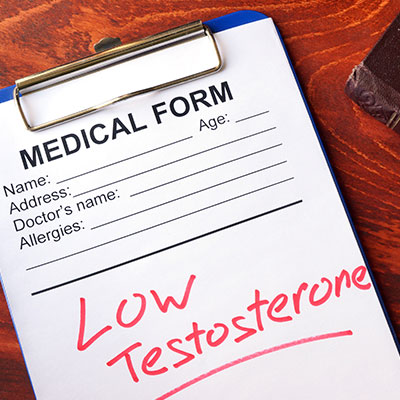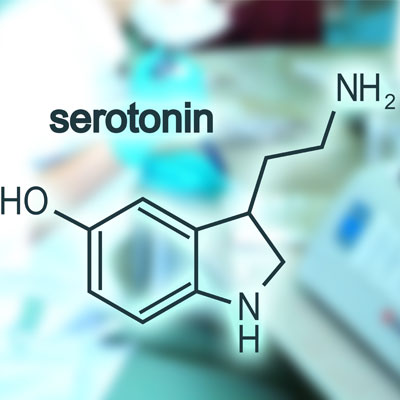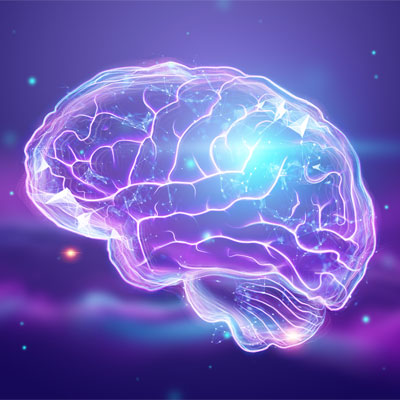Can Low Testosterone Cause Anxiety
Contents

It is well known that men need testosterone for their physical wellbeing. However, did you know that testosterone is also critical to your emotional wellness? There is a growing body of evidence that indicates how age-related testosterone loss can lead to feelings of anxiety and depression in men diagnosed with low testosterone.
For example, a 2016 study published in the journal, Psychoneuroendocrinology found that in older men, “low serum testosterone was associated with an 86% increased hazard of depression.”
Low Testosterone and Emotional Health
It is hard to say if low testosterone “causes” depression, but the correlation between men and women with low testosterone and depression, anxiety, irritability, and other mood swings have been well documented. Low testosterone also leads to erectile dysfunction, low sex drive, and a lack of physical energy.
These physical symptoms can lead to less enjoyment in life, which can also lead to feelings of anxiety and depression. But there could be something more to the link between low-T and depression.
Testosterone is necessary to produce serotonin and other important neurotransmitters. Neurotransmitters like serotonin are the brain’s “feel-good” chemicals that help to regulate mood and stave off depression. In fact, most antidepressants work by keeping levels of serotonin high. Neurotransmitters like serotonin help to relay messages across areas of the brain. Research has found that a person’s levels of serotonin are related to moods — particularly depression.
People with clinical depression have low levels of serotonin. People with low testosterone tend to be depressed or have anxiety or other mood swings. People with lower than normal testosterone levels also tend to have low serotonin levels. Is this because there is a relationship between testosterone, serotonin, and depression?
Current research seems to suggest that such a link is indeed the case.
We know that depression and mood swings are symptoms of low testosterone. Researchers have yet to define exactly how or why low testosterone causes depression. However, studies seem to indicate that it does have something to do with the impact testosterone has on the levels of neurotransmitters like serotonin.
Testosterone stimulates the release of dopamine, another neurotransmitter in your brain that is responsible for your feelings of pleasure. Serotonin, like dopamine, is also related to “feeling good.” When serotonin levels drop, depression and anxiety are often the result.
Studies have found that testosterone plays a role in regulating serotonin levels. A recent study in mice showed that low testosterone may directly alter brain chemistry –specifically serotonin levels. Studies of humans show that serotonin levels are lower in older adults with clinical depression. Older men also tend to suffer from low testosterone.
Low Testosterone and Mental States

Older men, and particularly menopausal women, complain of a condition known as “brain fog.” Brain fog relates to memory issues, a general sense of mental clarity, and an inability to focus on tasks. Taken together, these create a “cloudiness” in your mind that doctors refer to as “brain fog.” In many studies, low testosterone has been shown to contribute to brain fog.
The testosterone receptors in your brain crave testosterone. When you have low testosterone, these receptors are literally starved of testosterone, which can lead to:
- Mood swings
- Irritability
- Stress
- Anxiety
- Depression
Low testosterone not only affects cognitive function but emotional states as well.
Does Low Testosterone Cause Anxiety?
We cannot definitely say that low testosterone directly causes anxiety and depression. However, the conditions are certainly linked to one another.
Men with low testosterone tend to suffer from anxiety and depression. Some of this is because of the influence testosterone has on neurotransmitters and emotional states, and some of this is likely due to the weakness, obesity, and other physical ailments that can make a man feel depressed that are caused by low testosterone.
Can Stress and Anxiety Cause Low Testosterone

Testosterone and cortisol are biologically antagonistic. In other words, the higher your cortisol level in the blood, the lower the testosterone. The reverse is also true – the higher your level of testosterone, the lower your level of cortisol. Lowering your cortisol levels is yet another explanation as to why testosterone therapy can reduce feelings of stress and anxiety.
Can Testosterone Treat Depression and Anxiety?
Because of its none effect on increasing serotonin levels in the brain, testosterone has a similar effect to popular antidepressant drugs used to treat anxiety and depression.
Serotonin is responsible to maintain healthy brain cells. It is also critical to producing new brain cells. When serotonin levels are low, fewer new brain cells are created to replace dead and dying ones. This suppression of new brain cells leads to anxiety, mood swings, and depression.
The most effective antidepressant medications are known as “selective serotonin reuptake inhibitors,” or SSRIs. SSRIs work by slowing the “reuptake,” or use of serotonin, so that serotonin levels remain higher in the brain for longer periods of time. Mental health professionals believe that this boost in serotonin levels increases the production of new brain cells, which in turn helps to lift the fog of depression.
Current research suggests that testosterone produces the same “inhibition of serotonin reuptake” effect as SSRIs. Doctors have long known that testosterone replacement therapy improves mood in patients with low testosterone. This is particularly true in patients with low testosterone who are showing signs of anxiety and depression prior to beginning testosterone therapy. But researchers could not explain exactly why the increasing testosterone increased happiness — until now.
This link does not mean that testosterone therapy is to be used as a specific treatment or a replacement of antidepressant medications for patients with depression. However, it does provide a viable explanation as to why men with low testosterone often report depression and anxiety as one of their symptoms. This now established relationship between serotonin levels and testosterone levels also explains why men taking testosterone injections have improved moods, less anxiety, and an overall “better” outlook on life.”
What Does the Research Say About Testosterone, Anxiety, and Emotions?
A recent study into the link between low testosterone and depression in men looked at the medical records of nearly 300 men over the age of 45 during a two-year period. These men previously had no history of depression. Over the course of the two-year study, the researchers found that men with low testosterone were four times more likely to be diagnosed with clinical depression than those in the study whose testosterone levels remained in the normal range.
A recent study published in Biological Psychiatry found that testosterone increases the number of proteins that transport serotonin into the brain. The research was done by a team from MedUni in Vienna. The study team believes this apparent link between testosterone and serotonin explains not only why testosterone supplements can boost mood but also why depression affects women more than men and older men more than younger men.
It’s all about the link between testosterone levels and serotonin levels. The higher the level of testosterone in your blood, the higher the level of the “feel good” chemical, serotonin, in your brain. The reverse is also true. The lower your testosterone level, the lower your serotonin level, and therefore your increased risk of depression.
Now that you know more about your testosterone levels, anxiety, and other emotional states, why not contact us today and learn more about the many benefits of testosterone replacement therapy.
- Zulqarnain Javed PhD., Yong-Fang Kuo PhD., Jeff R. Temple PhD., Randall J. Urban MD., Holly Holmes MD., Jacques Baillargeon PhD.
- Linnea Hergot Berglund PhD., Hanne Sandberg Prytz, Aleksander Perski PhD., Johan Svartberg MD., PhD.
- Jenna McHenry, Nicole Carrier PhD., Elaine Hull PhD., and Mohamed Kabbaj PhD.
- Emese Domonkos PhD., Július Hodosy PhD., Daniela OstatníkováPhD., and Peter Celec MD.
Testosterone prescribing in men with depression and anxiety disorders
Testosterone levels and psychological health status in men from a general population: the Tromsø study
Sex Differences in Anxiety and Depression: Role of Testosterone
On the Role of Testosterone in Anxiety-Like Behavior Across Life in Experimental Rodents





